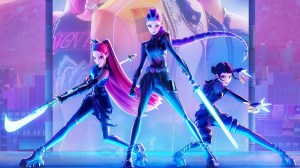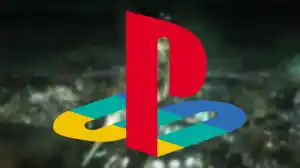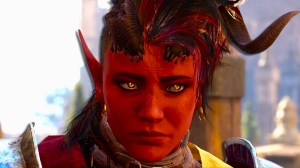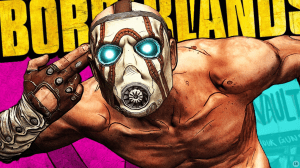Marvel’s Black Panther has had to walk a fine line of cultural sensitivity when it comes to depicting the African nation of Wakanda and her people, and the film is already gaining massive praise for its strong presentation of female strength and grace. However, there are many roads to controversy, these days, and Black Panther may soon find itself suffering criticism from the LGBTQ community.
Videos by ComicBook.com
Fans are once again picking up on the story of how Vanity Fair’s Joanna Robinson saw an early cut of a revelatory Black Panther scene, which she described as such:
“In the rough cut of this Black Panther scene, we see Gurira’s Okoye and Kasumba’s Ayo swaying rhythmically back in formation with the rest of their team. Okoye eyes Ayo flirtatiously for a long time as the camera pans in on them. Eventually, she says, appreciatively and appraisingly, ‘You look good.’ Ayo responds in kind. Okoye grins and replies, ‘I know.’”
Apparently, that exchange between the two women of the Dora Milaje didn’t make it into the final cut of Black Panther. When Screencrush had the chance to speak with co-writer Joe Robert Cole, the outlet asked him directly what had happened with that seeming nod to the LGBTQ nature of the women in the Dora Milaje, and Cole had something of a scattered or evasive answer:
“…I know that there were quite a few conversations around different things, different directions with different characters, and characters that we may have. We thought, ‘Well, maybe we’ll work it this way with an arc or work it that way with an arc.’
The scene you’re talking about, I don’t remember. I can’t remember the exact exchange you’re talking about, but I think it was really brief. I’m not sure. I know that it was not – there wasn’t some major theme through that we were looking to explore with that in terms of the story. We didn’t like, pull out a full thread of some theme. But your friend quite possibly could be right, or I’m maybe having a brain fart here and just can’t remember.”
The controversy over this aspect of Black Panther has been running since last year. When the first report from Vanity Fair came in, fans were excited: Marvel’s World of Wakanda comic book series (by acclaimed author Ta-Nehisi Coates and queer writer Roxane Gay) has a prominent storyline about a gay relationship between Dora Milaje members Okoye and Ayo, and it was thought that the movie would adapt that relationship.
However, Marvel Studios PR reps were quick to knock down that idea, responding to Joanna Robinson’s report by saying no romantic relationship between Dora Milaje members exists in the film. That immediately angered a certain sector of Marvel fans:
#LetAyoHaveAGirlfriend this is the chance to see openly gay black women in a superhero film and yet it’s being erased pic.twitter.com/Mw9N0ne6xi
— 💛 (@mistysknight) April 19, 2017
Just like the so-called controversy over Wonder Woman‘s depiction of Amazon culture (and lack of open girl-on-girl romance), Black Panther seems destined to be headed for a similar cultural debate. This one will certainly be more charged, as Black Panther is already advancing certain racial stereotypes, and the line between social justice causes often gets criticized and debated.
Regardless, we already know that Danai Gurira’s Okoye will be a breakout star in the Marvel Cinematic Universe, with a strong backstory and character arc. Whether that involves a female or male partner, either way, it’s good to see this character get her due.
Black Panther opens in theaters on February 16th. It’s followed by Avengers: Infinity War on May 4th, Ant-Man and the Wasp on July 6th, Captain Marvel on March 8, 2019, the fourth Avengers movie on May 3, 2019, the sequel to Spider-Man: Homecoming on July 5, 2019, and Guardians of the Galaxy Vol. 3 in 2020.








